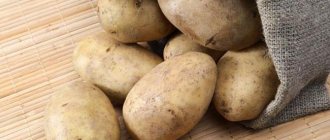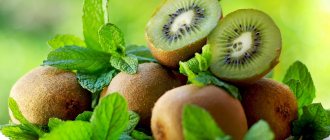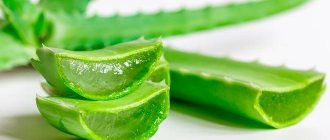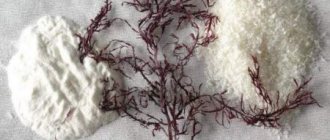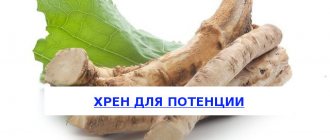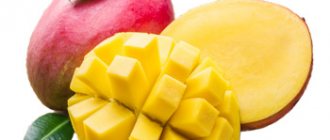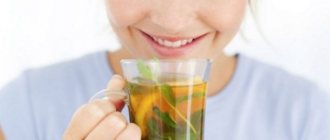Beta-carotene - what is it?
It is an orange-yellow pigment found in plants and animal foods. Entering the body, it is broken down and synthesized into vitamin A, a powerful antioxidant. A diet enriched with beta carotene is beneficial for health.
Uncontrolled use of dietary supplements containing the substance can provoke the risk of heart disease. Therefore, the decision to compensate for carotene deficiency with artificial preparations can only be made by specialists after studying the examination results.
Carotenoids are produced by plants and fungi, bacteria and algae.
The presence of a substance in a particular plant can be easily determined by its color. Orange, purple, and yellow vegetables and fruits are rich in carotene. The content of vitamin A is also established in herbs and tree leaves. In autumn, the chlorophyll that is part of the plants is destroyed, and they turn yellow, since only this pigment remains.
Beta-carotene is a substance that is also used as a dye (food additive). Encoding (international) - E160a. It is extracted from carrots and pumpkin using microbiological synthesis. Chemical analogs have also been developed, but they have not found widespread use because they are poorly absorbed.
The carotene produced is mainly of natural origin, because it is extracted from plant components.
What are the benefits of beta carotene?
- Carotene - provitamin A - is a powerful natural antioxidant . Antioxidants neutralize free radicals, which are dangerous to our health - unstable substances that include an atom with an unpaired electron. It is this “insidious” atom, striving for stability, that takes away the electron it needs from its “neighbor.” And thereby makes it, in turn, inferior, and the cell – deformed or destroyed. And a chain reaction, capable of leading to the most fatal consequences, has been launched. But our diseases are sick cells. But, fortunately, life-saving antioxidants are entering the battlefield for our health, a prominent example of which is beta-carotene. Its molecular structure (as many as 11 unsaturated bonds) allows it to intensively bind free radicals and harmful active oxygen. Thus, carotene prevents the development of tumors, exposure to radiation and other free radical processes. It can safely be called a radioprotective, anticarcinogenic and antimutogenic substance.
- By protecting cells from destruction, carotene - provitamin A - facilitates the functioning of our immune system. So if you want to get sick less during epidemics or recover faster from an illness, then beta-carotene is your sure help in strengthening the body’s defenses. Elderly people and those whose diet is far from ideal should especially pay attention to this valuable substance. For this category, a significant adaptogenic, immunostimulating effect has been confirmed by many studies. It is associated with an increase in the activity of T lymphocytes, macrophages and interferon, which accelerate immune responses.
- As a source of vitamin A , carotene is much preferable, since it does not have strong toxic side effects, which are characteristic of vitamin A taken orally in ready-made form. An overdose of the latter causes serious disorders of the digestive system, aching joints, itching and other symptoms of hypervitaminosis. The same cannot be said about carotene. Deposited in subcutaneous fatty tissues, it is converted into vitamin A at the request of the body itself - in the quantities it needs, no more and no less.
Properties of provitamin A
The effects of beta carotene on the human body are as follows:
- Prevents skin aging and the development of cancer. By exhibiting antioxidant properties, it eliminates free radicals that contribute to the aging process and the emergence of cancer cells.
- Saturates the body of pregnant women and enriches breast milk with vitamin A. Carotenoids are necessary for the full development of the fetus, as well as for infants feeding on mother's milk. The body of a pregnant woman requires 40% more beta carotene, and 90% more for nursing mothers.
- Improves regeneration processes of damaged skin, prevents sunburn.
- Preserves vision. Age-related changes in the organs of vision are inevitable. A diet enriched with the substance acts prophylactically and prevents the gradual death of eye tissue.
- Protects blood vessels and heart, prevents cardiovascular diseases. This effect is achieved due to the fact that carotene prevents the oxidation of cholesterol, which clogs all the blood channels of the body.
- Blocks senile changes in brain activity.
- Has a positive effect on lung and bronchial function. Useful for people suffering from asthma and persistent bronchitis.
- Minimizes the risk of diabetes.
- Prevents arthritis and arthrosis. A lack of vitamin A along with a chronic deficiency of vitamin C leads to the inevitable development of pathologies of bones and joints.
- Activates the central nervous system.
Why does the body need beta-carotene?
Beta-carotene is a plant pigment that gives vegetables their pleasant orange-red color. In the human body, it plays the role of an antioxidant, protecting cells from free radicals, strengthens the immune system, reduces the risk of infectious and colds, and also acts as an adaptogen.
In addition, the natural substance increases the body’s endurance to stress, reduces the risk of strokes and heart attacks, prevents the formation of sclerotic plaques and cleanses blood vessels.
Other benefits of beta-carotene:
- preserves visual acuity, nourishes the cornea, prevents aging changes in eye tissue, fights cataracts and glaucoma;
- stimulates cell division and bone growth;
- maintains the health and youth of the skin, protects from sun rays;
- accelerates the healing of wounds, burns and bedsores;
- ensures normal functioning of the prostate gland and improves the quality of seminal fluid;
- protects teeth from destruction and the oral mucosa from aphthous stomatitis;
- has a beneficial effect on the well-being of the expectant mother, as well as on the growth and development of the baby.
Beta-carotene is also needed when the ambient temperature rises, after chemotherapy, with frequent x-ray exposure or living in environmentally unfavorable areas.
Attention. The need for beta-carotene increases sharply with increased physical or mental stress.
In order for the carotenoid to bring more benefits, it is recommended to take it in combination with other antioxidants - vitamins C and E. These substances enhance the effect of the organic dye and accelerate its breakdown.
Daily intake for women, men, children
Table:
| Age | Men | Women |
| from 1 year to 8 years | 700 mcg | 650 mcg |
| From 9 to 18 years old | 2500 mcg | 2000 mcg |
| from 19 years old | 5000 mcg | 4500 mcg |
Beta-carotene is a substance whose need increases during physical activity, sports, during pregnancy and lactation. It is more advisable to eat not pure vitamin A, as it can contribute to hypervitaminosis, but beta carotene containing it.
Why does the body need the substance and how does it affect health?
Beta carotene destroys free radicals, increases stress resistance, strengthens the immune system, protects against radiation, electromagnetic radiation and chemical poisoning.
Its presence in the body is required:
- for hair growth and the formation of new cells;
Beta carotene helps in hair growth and new cell formation. - body resistance to infections;
- flawless functioning of the visual organs;
- regeneration of skin cells, mucous membranes;
- embryo development;
- formation and growth of teeth, as well as preventing their destruction.
The benefits and harms of beta-carotene
Research has unconditionally established the beneficial effects of carotene on the human body. Carotenoids, unlike animal retinoids, are safe at any dose. Unless the skin acquires a yellowish tint (carotenoderma) until the substance is removed.
There is no need to confuse the harm from an overdose of vitamin A, which can cause big problems, especially for pregnant women and smokers. This does not apply to carotene - the compound is completely harmless. An excess of carotenoids does not in any way mean an oversaturation of vitamin A - the body transforms carotene into retinol when it is deficient in the latter. Therefore, an overdose of beta-carotene does not mean an overdose of vitamin A, which doctors warn against.
How does our body benefit from beta-carotene?
- active action of a powerful antioxidant;
- protecting cells from damage from free radicals;
- reducing the risk of cancer;
- support for visual acuity and eye health;
- protection from radiation;
- replenishing the body with vitamin A;
- ensuring healthy skin, mucous membranes, and epithelium of internal organs.
Carotene activates weak immunity, and the duet with vitamin C helps to quickly overcome respiratory tract infections, flu, respiratory diseases, and colds.
Deficiency Symptoms
Beta-carotene is a substance whose deficiency is manifested by the following symptoms:
- Poor vision at nightfall (night blindness).
- Tearing of the eyes at low temperatures and wind.
- Dry mucous membranes indoors, redness of the eyelids.
- Dry skin and the appearance of wrinkles at an early age.
- Peeling, brittle nails.
- Dandruff.
- Constant colds.
- Weak, sensitive tooth enamel.
What are the dangers of shortage and excess?
The following symptoms indicate a lack of carotene:
- acne
- Ÿhair loss
- Ÿdeterioration of vision
- peeling nails
- dry skin with flaking
By consuming beta-carotene in its natural form, it is almost impossible to cause an overdose of the substance. But if it still accumulates in the body, then a yellow pigment appears on the palms and feet. There is no need to worry about this. Because your skin will acquire its natural shade when the excess substance is eliminated from the body.
However, taking concentrated drugs in excess may pose a risk of lung disease in vegetarians who abuse nicotine.
Indications and contraindications for use
Provitamin A will strengthen nails and hair, enhance their growth and appearance, eliminate dry skin and dandruff. The use of the drug eliminates redness of the eyelids and dry mucous membranes. It can improve overall well-being, mood, reduce drowsiness and provide a surge of strength.
Beta-carotene is a substance that, in a reasonable amount, cannot harm the human body. But if you abuse it regularly, the development of carotenemia (yellowing of the skin) is possible. Quitting its use usually returns the natural color of the skin; if the color does not return to normal, you need to visit a doctor. There are isolated cases of provitamin intolerance.
How to compensate for the lack of beta-carotene?
Pharmacology produces dietary supplements, medicines containing vitamin A directly in its pure form and complex preparations that contain it. Regular use of such drugs causes the accumulation of the substance and its presence in the body for a long period. An overdose of provitamin can lead to undesirable consequences.
Beta carotene, entering the body, is broken down, forming vitamin A of a special form (organic). The body does not have the ability to accumulate it on its own. A person can provide himself with the necessary amount of vitamin only by daily eating balanced food containing provitamin. Lack of the substance makes the body weakened.
The deficiency can be compensated by enriching the daily diet with foods with a high content of provitamins or by consuming medications and dietary supplements.
The natural intake of the substance will increase due to:
- consumption of fresh vegetables and fruits;
- enriching the daily menu with protein foods and foods containing omega acids (beta carotene absorption occurs with the participation of fats);
- stabilization of metabolic processes;
- elimination of diseases of the gastrointestinal tract, pancreas and kidneys.
Products containing beta-carotene
List of sources:
- carrot;
- parsley;
- sorrel;
- sea buckthorn;
- wild garlic and spinach;
- celery;
- apricots and melon.
The most accessible vegetable in terms of provitamin content is carrots. The content of the substance differs in the varieties of vegetables. However, this is not the most fortified product.
List of competitors of this vegetable:
- Sweet potato The vegetable, which tastes like sweet potatoes, is saturated with provitamin 2 times more than similar-sized carrots. Contains 48% of the daily requirement of beta carotene, and the potassium content in it is 3 times higher than in a banana.
- Cale. This curly cabbage is 7 times richer in provitamin than carrots, and also contains 500% of the required daily intake of vitamin C and 300% of vitamin K.
- Pumpkin . The queen of the vegetable garden is almost the same in provitamin content, but is rich in fiber.
- Liver . The animal product is not inferior in its enrichment with provitamins, simultaneously combining folic acid, iron, copper and a set of the following vitamins: B12, E, K.
- Dandelion leaves . 2 flower leaves contain 2 times more provitamin than 100 g of vegetable.
The presence of beta carotene in vegetables, fruits, and herbs depends on the season, maturity, processing method and method of preparation.
Beta-carotene: benefits for women
Plant pigment is necessary at all stages of a woman’s life. The substance will help young girls cope with acne and pimples, older ladies will get rid of the first wrinkles and dullness of the skin, and in the postmenopausal period it will protect against uterine fibroids and breast cancer.
In addition to these functions, provitamin A performs a number of other tasks aimed at protecting women's health:
- maintains reproductive organs and the genitourinary system in working order;
- corrects hormonal balance, fights spontaneous and habitual miscarriages;
- helps solve the problem of infertility;
- improves complexion, condition of hair, nails and teeth;
- protects against stress, emotional breakdowns and nervous disorders;
- facilitates the course of menopause;
- strengthens bones, protects against osteoporosis and other osteodiseases.
Beta-carotene is also useful for women who are losing weight. It speeds up metabolism, makes the body strong and resilient, helping to push harder in workouts, and also maintains firmness and elasticity of the skin after losing extra pounds.
To maintain normal body function, women need to consume 5-6 mg of beta-carotene daily. For diseases, the dosage can be increased to 10–15 mg.
You can get the substance both through nutrition and with the help of various vitamin supplements produced specifically for women. They are most often additionally enriched with zinc, selenium and vitamins.
Beta carotene for skin
Beta-carotene deficiency noticeably affects the skin - it becomes pale and dry, thins and begins to peel.
The first wrinkles appear around the eyes and mouth, and acne and pimples often occur. A properly selected diet and taking beta-carotene in oil or tablets will help keep the dermis young and healthy.
You can supplement your care with external products containing plant pigments. In addition, creams with provitamin A help to tan safely, replacing sunscreens.
Beta-carotene for hair
The condition of the curls depends on the amount of beta-carotene in the body - if there is a lack of the substance, they become dry and lifeless, lose their shine, split and fall out.
It is recommended to supplement the oral intake of provitamin with masks with an oil solution of beta-carotene. Such comprehensive care will quickly restore strength and health to your hair.
Names of drugs, vitamin complexes, prices
| Drug name | Cost, rub.) |
| Vitrum | 480 |
| Beta carotene | 750 |
| Solgar | 1150 |
| Source Naturals | 980 |
| Now Foods | 1600 |
| Jarrow Formulas CarotenALL | 900 |
| Country Life | 2250 |
| Natural Factors | 700 |
| Karotolin | 350 |
| Cyclocar | 1350 |
Vitrum: description, instructions for use
This drug, in addition to beta-carotene, includes a vitamin and mineral complex. Regular use of the product enhances the body's protective functions, improves the enrichment of tissues with oxygen and metabolism, increases the speed of metabolic processes and the removal of toxins.
This action provides stress resistance during times of increased psycho-emotional stress, and eliminates the adverse effects of alcohol, nicotine, and chemical compounds. The vitamin complex catalyzes biochemical reactions, accelerates the formation of enzymes and restores hormone balance.
Vitrum is approved for use by children over 12 years of age and adults.
Compensation for the daily amount of provitamin required by the body is achieved by consuming 1 tablet per day. Reception is carried out after eating food. The tablet is swallowed and washed down with a glass of warm water. The drug is contraindicated for persons who have individual intolerance to the components included in the drug and for hypervitaminosis.
Beta carotene
The drug is available in the following forms:
- tablets with a concentration of 0.4 mg;
- tablets with a concentration of 2.5 mg;
- capsules with a concentration of 10 mg.
The dose and period of treatment with the drug are determined by the doctor. Typically, for prevention, patients over 4 years of age are prescribed from 0.01 mg to 0.03 mg once a day. Beta-carotene is drunk during or after meals. The recommended dose for expectant mothers and during lactation is 0.01 mg. Simultaneous use of the drug and other vitamin complexes can cause an overdose of provitamin A.
Solgar
The Solgar company has launched the production of beta carotene from plant raw materials (extract from seaweed). The tablet form differs in that it does not contain flavorings, preservatives, sweeteners, yeast and gluten components. Due to this, the drug is safe for diabetics, allergy sufferers and can be taken by vegetarians.
The dietary supplement contains provitamin A in an amount corresponding to the required daily intake for an adult. If necessary, the tablet can be divided for use by children from 3 years of age to 12 years. Zinc promotes the absorption of carotene by the body.
Another difference between the Solgar dietary supplement and other similar supplements is the presence of zinc. A mineral is added to the tablet in an amount of 18 percent of the required daily intake for an adult. The recommended dose is 1 tablet per day. The drug is taken during meals. Supporting the body with this supplement is important in winter and during seasonal viral diseases.
Source Naturals
Since 1982, the American company Source Naturals has been creating vitamin complexes. In 2010, the brand included about 600 types of products.
This company's product containing beta-carotene (Active A) includes:
- 15,000 IU beta-carotene;
- 23 mg calcium.
Stearic acid, colloidal dioxide, willillose (modified and microcrystalline), calcium phosphate are the substances that give the tablets their shape. 1 package contains 120 tablets. A one-time daily dose involves taking 1 tablet.
Now Foods
The product containing provitamin A from Now Foods is derived from carrots. Capsules are packed in a plastic jar of 90 pieces.
Contents of 1 capsule:
- 25000 IU - beta-carotene;
- 5 IU - vitamin E;
- 10 mg - lecithin.
The difference between the product and its analogues lies in the selective synthesis of vitamin A. The process starts only in case of a deficiency of the substance in the body. Therefore, the drug is not capable of causing an overdose.
Prevention of immunodeficiency in adults is carried out by consuming 1 capsule every 2 or 3 days with meals. The therapeutic effect is achieved by taking capsules daily for 2-3 weeks.
The manufacturer recommends that children under 5 years old take 1 capsule per week for 5-7 weeks.
Jarrow Formulas CarotenALL
The composition of the drug is 7 carotenoids. The complex of provitamins is able to protect vision and has a preventive effect on the cardiovascular system and prostate. All components are synthesized from the pulp of palm tree fruits.
The action of the drug is aimed at:
- maintaining prostate function;
- prevention of oxidation of mucous membranes and lipids;
- inhibition of the aging process of body cells.
1 capsule is enriched with 25,000 IU of provitamin A. The drug is taken according to the regimen prescribed by a specialist or 1 piece up to 2 times a day. The course of treatment is at least 1 month.
Country Life
The American pharmaceutical company produces more than 20 types of certified vitamins that meet all international standards. The dietary supplement is made from natural raw materials, does not contain gluten, meets GMP requirements and contains 25,000 IU of provitamin A.
Additional components: Vitamin E (4IU) and soy lecithin. 100 tablets are packed in a plastic bottle. They have a soft consistency to the touch. The daily dose of the supplement is 1 tablet. Reception is carried out while eating food.
Natural Factors
The Natural Factors company produces a product containing a complex of carotenoids. It is believed that beta-carotene mix has more benefits than a drug consisting of one type of provitamin. The dietary supplement contains beta, alpha and gamma carotenes.
In addition, lutene, lycopene and zeaxatin will be included.
The package consists of 90 gelatin tablets of 25,000 IU of beta carotene each. The daily dose of tablets for an adult should not exceed 1 piece.
Karotolin
The drug is made from rosehip pulp meal. This is an oil solution containing 120 mg of a highly concentrated solution of carotenoids. The manufacturer allows only external use of the product in case of injury to the skin and mucous membranes.
The healing effect is manifested by stimulating tissue metabolism. The affected areas are lubricated (made as lotions) 1-2 times a day with napkins soaked in oil solution.
Cyclocar
The product is a beta-carotene preparation, produced for oral administration in several forms: dragees, oil solution, tablets and extract.
This is an antioxidant recommended for use:
- with low radiation exposure;
- after X-ray examinations;
- recovery from poisoning with pesticides;
- after treatment with laser procedures;
- the occurrence of immunodeficiency.
Cyclocar is also prescribed in the treatment of stomach ulcers, gastritis and bronchitis. The daily intake is from 0.03 to 0.65 g. Duration of treatment is 3-6 months.
What foods contain beta-carotene?
Of course, in carrots. And not only in it, but also in any vegetable colored red and yellow. In addition, beta-carotene is present in many leafy crops where chlorophyll covers up the orange hue. By autumn, the green pigment disintegrates and we see browned leaves and bushes.
This is interesting. The least beta-carotene is found in yellow vegetables and fruits, a little more in orange and a record amount in deep red plants.
Foods rich in carotene:
- vegetables - green peas, tomatoes, sweet potatoes, broccoli, bell peppers, zucchini, cabbage, spinach, pumpkin and carrots;
- fruits - persimmons, nectarines, plums, mangoes, cherries, peaches, apricots, melon;
- berries - black and red currants, blueberries, gooseberries, rose hips.
The amount of provitamin A in plants depends on the time of year and degree of maturity. Most of the substance is found in vegetables grown in the open sun on environmentally friendly and fertile soils.
Other foods that are sources of beta-carotene include green onions, various leaf lettuces, lettuce, sorrel, mustard, beet and carrot tops, and spinach. Natural sea salt also contains a lot of provitamin A.
It may seem surprising to many, but even cucumber contains beta-carotene. Of course, there is little β-isomer in greens, only 1% of the daily value. But the vegetable is rich in carotenoids lutein and zeaxanthin - 100 g of product contains 383% of the daily dose.
These substances, like beta-carotene, can accumulate in the tissues of the eye, providing protection and visual acuity.
This is interesting. A huge amount of provitamin A is found in green seaweed. In recent years, many successful attempts have been made to cultivate this amazing plant in limited water bodies. Thus, Orenburg scientists began growing healthy algae in one of the lakes in Sol-Iletsk back in 2010.
Which root vegetable contains more carotene?
Carrots have always been considered the champion in the amount of provitamin A. 100 grams of vegetables contain at least 6–7 mg of nutrients. To satisfy an adult's daily requirement for beta-carotene, you only need a couple of fresh and juicy root vegetables.
However, recent studies have found that pumpkin contains no less carotene than carrots. It turns out that 100 grams of melons contain 3100 mcg of plant pigment, which is 62% of the daily requirement. To get the maximum benefit from pumpkin, cook it in the oven or over low heat, adding milk or butter.
Beta-carotene: where is it found?
Carotene in food is one of the ways to compensate for vitamin A deficiency in the body. But to do this, you need to know not only what the plant pigment contains, but also in what quantities it is present.
With this information, you can create a very tasty and healthy diet for every day for both a child and an adult.
Let's create a table of beta-carotene content in foods.
| Products | Provitamin A (mg/100 grams) |
| Carrot | 5,6–16,3 |
| Pumpkin | 3,1–15,0 |
| Sweet potato (sweet potato) | 8,5 |
| Sea buckthorn | 6,6 |
| Sorrel | 6,6 |
| Parsley, greens | 5,7 |
| Rosehip berries | 5,0 |
| Spinach | 4,5 |
| Sweet pepper | 4,3 |
| Mango | 2,6 |
| Green onions, feather | 2,2 |
| Melon | 2,0 |
| Apricots, fresh | 1,6 |
| Tomatoes | 1,2 |
| Peaches | 0,8 |
| Persimmon | 1,2 |
| Green peas | 0,3 |
| Corn | 0,3 |
| Plum | 0,2 |
| Cherry | 0,1 |
| Fresh cucumber | 0,06 |
The table below shows which foods contain the largest amount of beta-carotene. They should be included in your daily diet.
Attention. The level of provitamin A in carrots largely depends on the variety of root vegetable. This should be taken into account when planning your diet.
It is not recommended to keep vegetables, fruits and herbs in the light for a long time without packaging - this is fraught with the loss of a significant amount of nutrients and a decrease in the nutritional value of the products. Rapid freezing of plants, on the contrary, completely preserves their biological activity. Tocopherol and ascorbic acid enhance the effect of carotene.
Prevention of provitamin A deficiency
Prevention of primary hypovitaminosis involves a special diet that includes foods enriched with provitamin A. Beta-carotene, entering the intestines, undergoes oxidation, after which it becomes ineffective.
So, for complete absorption and in order to avoid the destruction of carotene, products enriched with the substance are recommended to be combined with products containing zinc and vitamin E. These components will prevent oxidation and activate the absorption of the present vitamin A. The secondary form of vitamin deficiency requires following a diet simultaneously with the use of vitamin preparations for for 2-3 weeks.
Article design: Oleg Lozinsky
